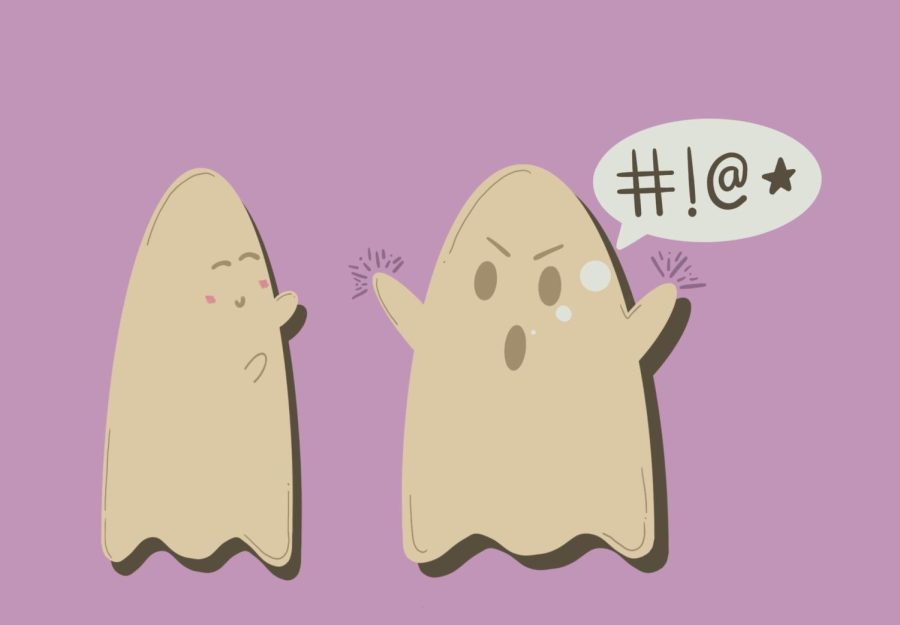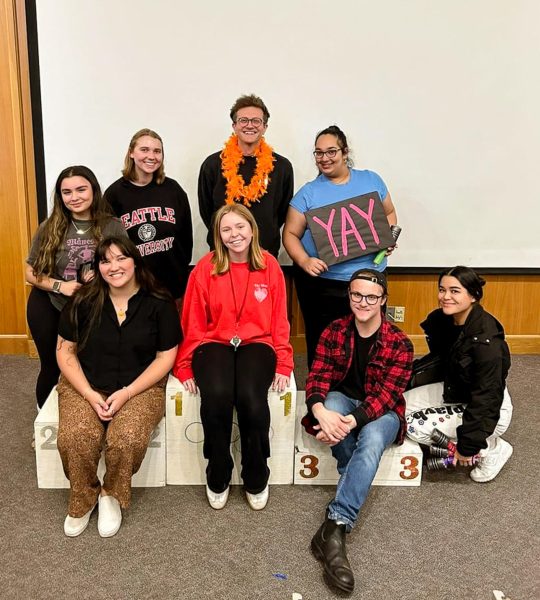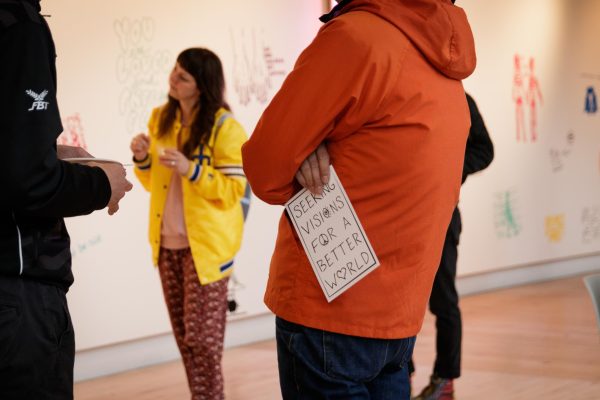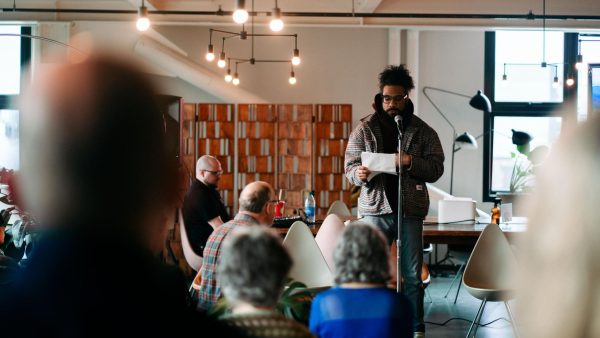Building Healthy Relationships at Be a Better Boo Workshop
The majority of students will enter a romantic relationship at some point in their college career, but young adults entering into new romantic and platonic relationships may leave unhealthy behaviors unrecognized.It can be difficult to recognize unhealthy patterns in relationships, as they can be subtle. Most relationships are nuanced and not exclusively abusive or unhealthy, so those patterns can be hard to identify at times.
Knowing the signs of an unhealthy relationship is also helpful for those who have friends and family members in toxic relationships. Mikaela Wallin, the associate director of Wellness and Health Promotion at Seattle University, sees a need for her organization to give students an opportunity to have open discussions about these relationships.
“Conversations around healthy relationships can be really hard sometimes,” Wallin said. “Spaces and conversations like these are so vital because they allow students to be in a space with peers where they’re really able to dialogue about these characteristics and start to unpack and understand how we all can be better and strive toward healthier relationships in our own lives.”
Onelove, an organization focused on relationship education defines healthy relationships as having ten key characteristics: moving at a comfortable pace, honesty, respect, kindness, healthy conflict, trust, independence, equality, taking responsibility and fun. Healthy relationships are not perfect, but it is ideal that a relationship makes partners feel good about themselves.
Unhealthy relationships are similarly defined, including: intensity, manipulation, sabotage, guilting, deflecting responsibility, possessiveness, isolation, belittling, volatility and betrayal. Nearly everyone displays unhealthy behaviors at some point, but catching these toxic qualities in yourself and others before they escalate is the first step in building healthier relationships.
Wellness and Health Promotion recently hosted an event entitled Be a Better Boo: a Healthy Relationships Workshop. One of the activities was watching scenes from autumnal movies like “Corpse Bride,” that displayed examples of different unhealthy relationship behaviors. Participants would hold up any of the cards labeled with the ten unhealthy behaviors that reflected the conflict in the scenes, and then would raise the cards that reflected any of the ten healthy behaviors that could have improved each interaction.
Andi Thomas-Sanchez, the Program Coordinator for Healthy Relationships at Seattle U, saw a need for the workshop from young adults.
“I think in general a lot of unhealthy relationship behaviors are pretty normalized. There’s some things we talk about, like jealousy or intensity, that I think definitely in pop culture we learned, ‘Oh, that’s romantic, that’s normal,’” Thomas-Sanchez said.
The reality that not all unhealthy relationships are completely toxic all of the time was a point of conversation during the workshop. Unhealthy behaviors can be compensated for through positive actions, making them harder to recognize.
Additionally, most relationships have both healthy and unhealthy qualities. By observing relationships through the lens of these twenty characteristics, it is easier to see the nuance in relationships and improve unhealthy behaviors.
Carmen Jin, a fourth-year creative writing major, said that discussion of healthy conflict stood out to her in the workshop.
“Conflict isn’t necessarily a negative thing. Conflict naturally arises in relationships just because people have differing opinions and it’s actually healthy. I think people can actually grow from conflict… sometimes expressing differing opinions and having those conflicts can actually help people learn and grow and it’s better to have those conversations rather than not.”
Communication in conflict is a large part of any healthy relationship, and is a stepping stone to other positive behaviors and feelings toward a relationship. Honest discussion without fear of how the other party may react can build trust and comfort.
Wellness and Health promotion will be hosting a Supporting a Survivor Workshop on Monday Nov. 21, where students can learn how to best support survivors of sexual and domestic violence. They will also be hosting De-Stress with Dogs on Wednesday Nov.r 30, where students can spend time with trained staff and therapy dogs.
“It’s really important that our education is relevant and our resources are relevant. If students feel like there’s a topic that is really important here at Seattle or an issue that they really want to see us [have] a program about, let us know. Because ultimately we exist to serve like all of SU.” Thomas-Sanchez said.






![Civil War is A24’s Political Blockbuster Exceeds Expectations [REVIEW]](https://seattlespectator.com/wp-content/uploads/2024/04/CivilWarReviewWeb-1-600x396.jpg)


